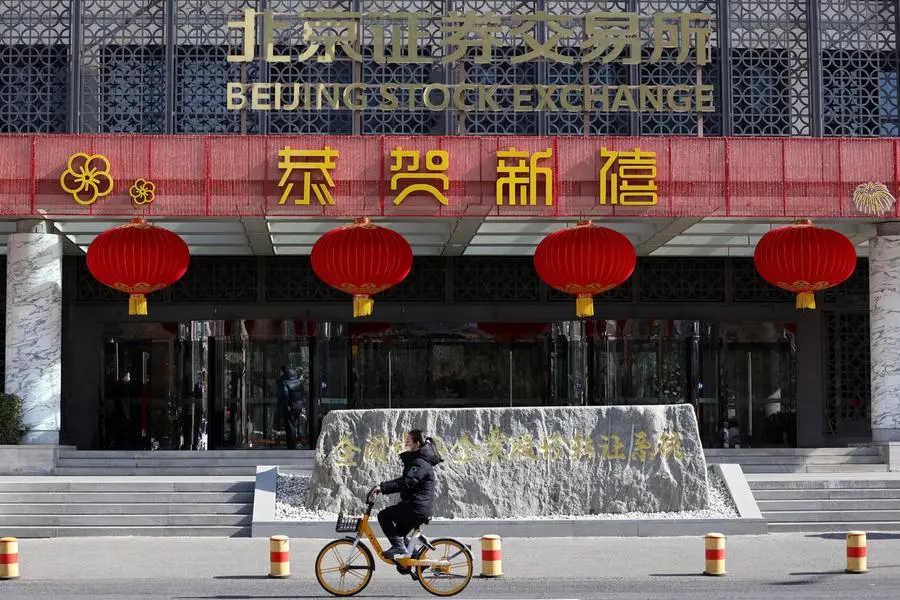PHOTO
SHANGHAI - China and Hong Kong stocks ended lower on Thursday, with key mainland gauges snapping their four-day winning streak, as investors grew cautious and weighed the potential impact from the upcoming U.S. presidential election.
The growing bets of a possible second Donald Trump presidency and higher trade tariff threats have dampened market sentiment, investors and analysts said.
"In the betting markets, Trump-over-Harris spread has widened sharply in favour of Trump," said Christopher Wong, FX strategist at OCBC Bank.
"And that brings back worries of tariffs, inflation and fiscal concerns... A Trump outcome may see a play-up of U.S.-China trade tensions and should inject some uncertainty into markets."
At the close, the Shanghai Composite index was down 0.68% at 3,280.26 points, while the blue-chip CSI300 index was down 1.12%. Both indexes snapped their four-day winning streak.
The financials sub-index fell 0.47%, the consumer staples sector lost 1.51%, the real estate index dropped 1.95% and the healthcare sub-index shed 1.37%.
In Hong Kong, Chinese H-shares, the Hang Seng China Enterprises Index fell 1.59% to 7,359.14 points, while the Hang Seng Index was down 1.3% at 20,489.62.
Tech stocks were among the biggest losers in Hong Kong, with the Hang Seng Tech index plunging 2.64%.
The U.S.-China tech war is all but certain to heat up no matter whether Republican Donald Trump or Democratic Vice President Kamala Harris wins the Nov. 5 election, with the Democrat likely to come out with targeted new rules and Trump a blunter approach.
"With the U.S. election less than two weeks away, portfolio managers need to be wary of potential market volatility driven by the binary outcome of either a Harris victory (status quo) or Trump victory (near-term dollar strength)," said Eugene Hsiao, head of China equity strategy at Macquarie Capital.
Meanwhile, the possible meeting of the Standing Committee of the National People's Congress is on the radar. While the date of the meeting hasn't been announced, markets are expecting more details on near-term fiscal stimulus measures.
"We recommend investors to remain patient before sizing up China exposure in light of a still evolving policy landscape as the market has yet to settle into a new equity risk premium under the policy put mandate," Hsiao said.
Beijing earlier this month pledged to "significantly increase" debt to revive its sputtering economy, but left investors guessing on the overall size of the package.
(Reporting by Shanghai Newsroom; Editing by Sumana Nandy and Mrigank Dhaniwala)




















